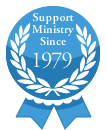Minister Quits Over “Clergy Abuse”
Bob Harvey, Ottawa Citizen 14 June 1999
One of the United Church’s most controversial ministers has retired early to protest what he says is the church’s “brutal and soul-destroying treatment of its clergy.”
Kaye (Casey) McKibbon has been counseling clergy in trouble with the church for almost 20 years, and he took one last shot at the denomination last week when he formally resigned from the ministry.
In a letter of resignation, he wrote, “I protest the terrible, unjust treatment of (Rev.) John Wesley Oldham at Rama, (Rev.) Ted Wigglesworth in Alberta, (Rev.) Barry Robinson in Toronto, (Rev.) Kevin Annett in Vancouver, (Rev.) Gale Blue in Winnipeg, and the over 2,000 clergy who have complained to me over the years.
“I do this also in memory of the late Rev. Ron McCaw, driven to an early grave by the church bureaucracy and uncaring clergy applying the process,” he said.
Mr. McKibbon, 61, left Metcalfe United, south of Ottawa, at Easter after 20 years with the congregation, and took a sabbatical. Last week he decided not to seek another posting.
He says he gets two or three calls a week from ministers who are being forced out of their jobs, and estimated that every year about 300 of the United Church’s almost 3,000 ministers run into trouble with their congregations or the denomination’s bureaucracy.
“It’s very difficult to tell a minister his chances are slim to none of finding justice in the church. And if he does fight, his finances will be ruined, and his spirituality will be non-existent at the end of the process. And in many cases, their marriages collapse.”
Mr. McKibbon said he gets calls from clergy from many faith groups, but Catholic priests are usually well taken care of by their church, and Jewish rabbis have contracts that provide them with some protection. Protestant clergy are the only ones who get little help, he says.
“The basic problem is that the churches never come to grips with the people who cause the problems. Its basic position is to get rid of the pastor, no matter how innocent he is.”
He said the United Church has the most enlightened conflict management procedures of any Canadian Protestant church, but even what it does to ministers in trouble amounts to a “spiritual lobotomy.”
Mr. McKibbon said those ministers who somehow survive the mediation process, “lose their drive, and their evangelical fervor, and become just workers, functionaries. The proof that it happens is that they never cause trouble again.”
He says the denomination regards him as “a loose cannon,” and says he has been so marginalized by the church that clergy in trouble never turn to him “until they have no other choice.”
Mr. McKibbon said he began his Clergy Support Network and his study of what he calls “clergy abuse” after he himself ran into trouble with a congregation in Toronto in the mid 1970s. He said he solved his problems like most ministers do: by moving on to another congregation.
Before he entered the ministry, he was a regional manager for a credit collection agency, and now thinks he might have been better to stay in the business world.
“It’s more caring, and it would have been easier for me to express my Christianity within the business world than within the church.”
He says he will miss the average church-goer, but not the church bureaucracy. “It’s anal and demonic,” said Mr. McKibbon.
“I do not in any way see this church as a brutal and soul-destroying organization,” said Rev. Steven Chambers, who oversees personnel matters for the United Church of Canada. “We work hard to encourage healthy relationships between ministers and congregations. However, like all bodies, sometimes we fail,” he said.
Mr. Chambers said the denomination does not keep statistics on conflicts between clergy and their congregation, or the number of calls to regional offices set up to mediate in such situations.
In Mr. McKibbon’s letter of resignation, he names six United Church Ministers who were all forced out of their positions in very pubic and prolonged battles.
Mr. Oldham was the Minister on the Chippewa Reserve at Rama, near Orillia when he was forced out three months ago in a conflict with congregation members who objected to his attempt to blend Native and Christian spirituality in worship services.
Mr. Wigglesworth’s salary and benefits were terminated two years ago after some members of the congregation in Bashaw, Alta., complained about his traditionalist theology. He has launched a multi-million dollar lawsuit against the denomination, and has also charged the church’s moderator, Rev. Bill Phipps, with heresy.
Mr. Robinson was the minister at Wilmar Heights United Church in Scarborough, and lost his job two years ago when liberals and traditionalists polarized around him.
Mr. Annett lost his right to work as a Minister in the United Church in 1997, after a church tribunal upheld charges that he was not an effective Minister and usually created tension, confrontation and dispute. He and his supporters repeatedly charged that the United Church didn’t care about the poor and wanted to cover up murders at a Port Alberni residential school.
According to Mr. McKibbon, Mr. Blue was a minister in the Winnipeg area who was forced out of his job about 20 years ago, and ended up living in a cabin and shooting squirrels to survive, while he cared for a seriously ill wife. Today Mr. Blue is a security guard, said Mr. McKibbon.
Mr. McCaw was dismissed from his Church in North Bay in 1983 for his evangelical style of preaching. He won an undisclosed financial settlement from the United Church in 1991, but never ministered in the denomination again. He died last January.
